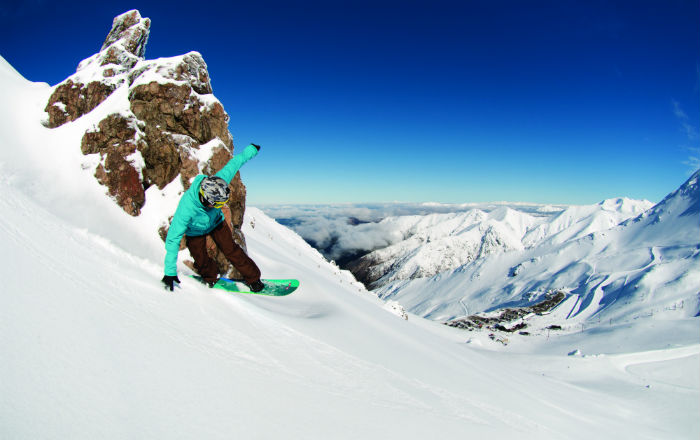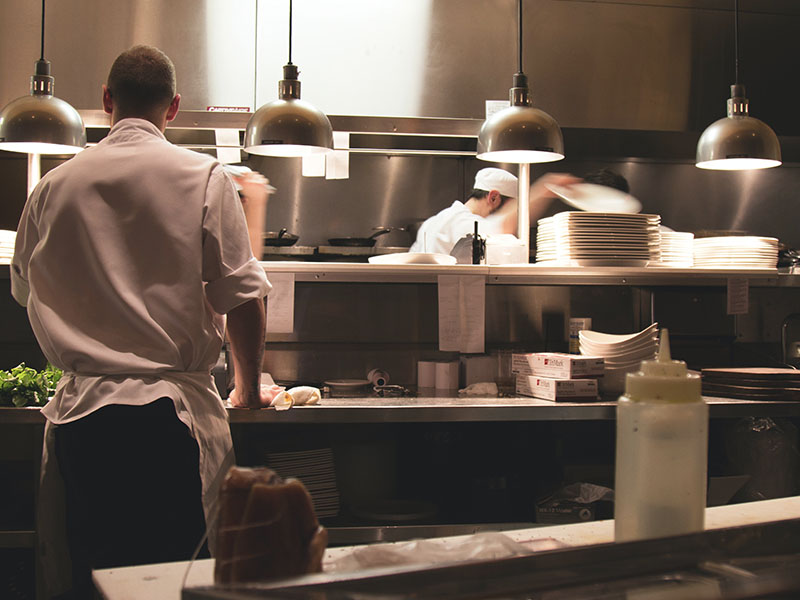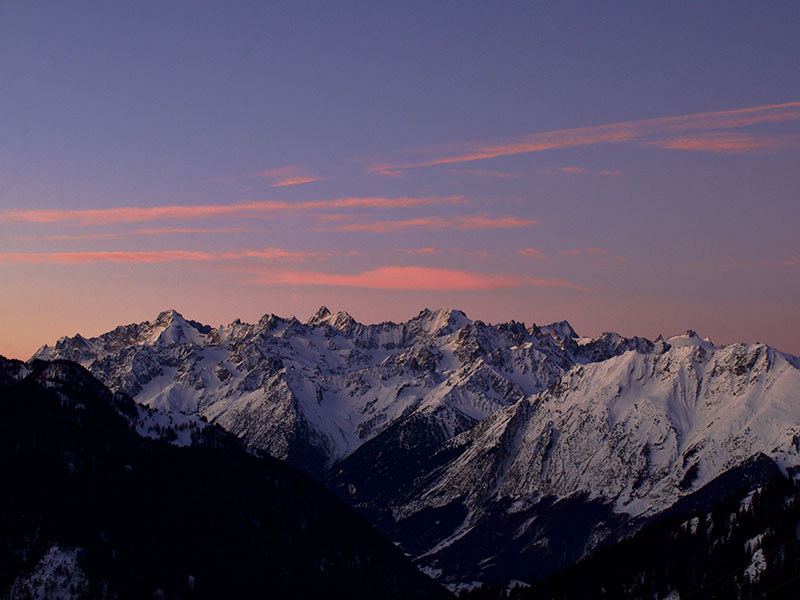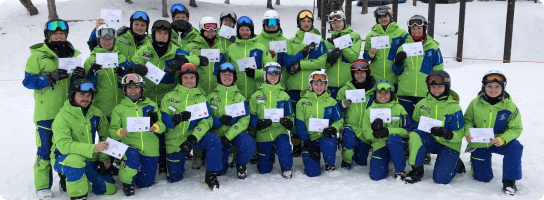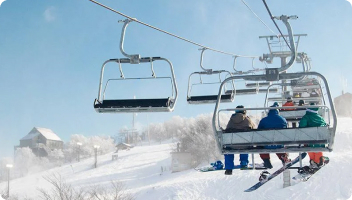Now that you have decided why to work a snow season, you have chosen an awesome resort, and you have sorted out your gear, what can you expect from your snow season?
Work
Your job could be any number of things, from chef, to cashier, to rental assistant to ski instructor.
As a general rule, you should expect to work full-time hours – that is, five days per week. Ski resorts do not hire more staff than is necessary, given the cost of hiring. If you are working for a tour company, you are often expected to work up to six days a week.
While working a snow season is great fun, with a job comes all the usual responsibilities such as doing menial chores and cleaning. Many of the lower end jobs become very repetitive as the season progresses.
You should expect to be up early most days. Peak customer demand is usually in the morning as the lifts open.
You should expect resort management to constantly repeat how important customer service is, and how important it is to go out of your way to make the customer feel welcome.
Many ski resorts run very close margins of profit and, while you may only be there one season, this is how they make a living. Poor numbers at resorts means they will struggle to make a profit – and ski resorts are forced to shut down each year due to a lack of profitability.
As with all service jobs, you may dislike a large number of the customers. Many customers will be rude. Many will not do as you say (lift operators be warned). Don’t let them get to you, just brush it off, keep up a smile, and remember that while they have only a few days on the hill, you get the whole season.
Money and Pay
Entry level jobs at ski resorts will usually pay the minimum wage. More specialised roles, such as ski instructors, snow groomers, resort management and ski patrollers will earn more depending on experience levels.
Bar and wait staff in restaurants and bars can usually expect to earn a little bit extra due to tips, though of course that depends on the country in which you are working (North Americans are known for tipping – Europeans not so much).
If you are coming in from another part of the country, or internationally, you should expect to spend quite a lot of money on start-up costs. Even if you have a job lined up for your arrival, you will need money for:
- Transfers to the resort (bus/train)
- 4 – 6 weeks rent plus the landlord’s bond
- Food
- Tipping and going out getting to know everyone
- New gear you buy because you forgot something or you simply want to upgrade
- Start up costs for the apartment.
A rough guide for these costs is around USD$2000 on top of your flight costs. Once you pay check comes in, you should be able to live off the money you earn.
Further, you may wish to plan road trips in the first few weeks. By all means be thrifty with money, but do not miss out on epic powder days down the road because of it.
Ski and Snowboard Time
Getting onto the slopes as much as possible is generally why seasonal workers come to the snow.
However, you should ease into the season. Experienced snow season workers (such as ski patrol and avalanche crew) who work professionally in the ski industry have a rule of thumb to take it easy the first seven full days on the mountain.
Only afterwards will they hit the gnarlier terrain. They pace themselves, knowing that they will 100 days or more on their lift pass for the season.
Much of the best terrain – chutes and bowls out the back – will often not even open up until a couple of months before the end of the season. You need to play the long game.
Depending on your job, you may get two full days off per week in addition to ride breaks during the day, if you are lucky. 100 days on the slopes for the season is generally a very respectable number.
You may notice that many seasonal workers become picky with the days they ride as the season progresses. Too icy? “Let’s just chill inside today in the warm apartment and play pool.”
Remember also that your days off are also the time when you will need to do your shopping and errands, which can cut into your ride time for the season.
You should generally battle against the urge to stay indoors on a semi-decent day. You are guaranteed to not improve while sitting watching snowboard movies and dreaming. To improve you need to push yourself a little bit.
Some seasonal workers will come out for their first season and tackle chutes quite confidently by the end of the season. Some who do not push themselves will struggle to look decent on intermediate runs by the end of the season. As always, make sure you seek specific advice before hitting up avalanche prone or other dangerous terrain.
Injuries
Unfortunately, many first-time seasonal workers get injured within a few weeks of arriving. This is principally due to going too hard, too early, and not working into the season. Injuries are also relatively common throughout the season among seasonal workers.
A common injury is snowboarders with a broken collarbone. Many first-time seasonal workers become overconfident early on. Then, they pick up too much speed on an access trail or another easy slope, catch an edge and fall badly, crashing down on a collarbone. That sucks!
Keep to your limits early, and then hit it harder once the season has warmed up.
Lifestyle and Nightlife
Your life over the season will revolve around your job, riding or shopping on days off and going out at night.
Depending on your town, you may be in a lively town or a backwater.
In the resort towns known for their après-ski and nightlife, there will be a constant flurry of tourists and events on every night of the week in the bars should you choose to join them.
In smaller towns, there are usually certain nights of the week when seasonal workers head out together to the bar or pub.
However, as you will usually be working five days a week, on many nights you will be too exhausted to go out. Instead, you will want to just cook some pasta, watch TV and go to bed in time for the next morning.
Towards the end of the season, many people get burned out and become ready to leave. In fact, many people usually quit during the season. For many, the season is done a few months out from the end.
Many of the guys will lose weight! This is due to hard riding and the eating of a lot of pasta and not much else. While mountain food (burgers / hot chocolates etc.) can be very dense, it is also quite expensive.
The best advice is to always get to the supermarket every week for shopping, even when you cannot be bothered. It takes effort to eat well at a ski resort, so you will have to go out of your way.
Customers and Colleagues
For the most part you will meet some of the best people you are ever likely to meet. These will be people who live for the snow and good times in the powder and park.
Nonetheless, like any work environment, there will be wide range of people with whom you will work. Some people may be odd, some you will not like.
Your bosses will generally be quite relaxed, but they still work there every year, and you are still a newbie to them. If you make their job easy, they will be more likely to help you out and get you onto the slopes in downtime.
The customers are, like in all hospitality roles, a mixed bag. While most are there to have fun and are quite relaxed, there are always a few who are uptight or just having a bad day.
Finally – Don’t Forget
Respect the mountain and avalanches. You should always take the correct precautions when in the snow in relation to avalanches and other hazards associated with skiing and snowboarding. It is never advisable to ski or snowboard alone and you should always carry the correct equipment and know how to use the equipment in case of an emergency.
Hit it hard and there are no friends on a powder day!


